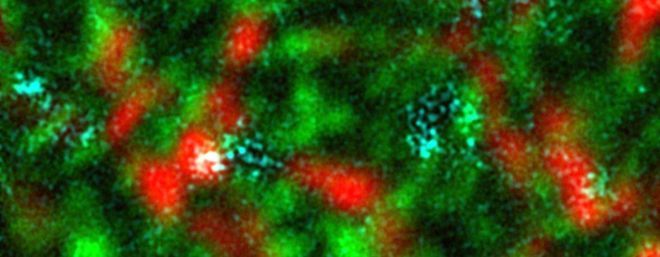Department of Molecular Medicine, Faculty of Medicine, and the Department of Biosciences, Faculty of Mathematics and Natural Sciences, University of Oslo, in collaboration with NBS Oslo, is happy to present a one-day symposium on the most recent discoveries in the field of ER Proteostasis.
Program
- 08.30 - 09.00 Fruit and Tea/Coffee - Meet and greet
- 09.00 - 09.15 Welcome and Acknowledgments
-
09.15 - 12.30 Session 1
- 09:15 - 10.00 Dentist Olaf Aase and wife memorial lecture - Luke Wiseman, Scripps Research, USA: “A Little Goes a Long Way: Pharmacologically Targeting the Unfolded Protein Response for Etiologically-Diverse Diseases”
- 10.00 - 10.45 Rebecca Taylor, Medical Research Council, UK: “Stress signalling in C. elegans: new roles for old responses”
- 10.45 - 11.05 Coffee/tea break
- 11:05 - 11:50 Romeo Ricci, University of Strasbourg, France: “Degradation of insulin: Good in starvation bad in diabetes”
- 11:50 - 12:35 Fahri Saatcioglu, University of Oslo, Norway: “Unfolded Protein Response Drives Prostate Cancer”
- 12.35 - 13.30 Lunch
-
13.30 - 17.00 Session 2
- 13.30 - 14.15 Eelco van Anken, San Raffaelle Research Institute, Italy: “Stress & Zen in the secretory pathway”
- 14.15 - 15.00 Ebru Erbay, Cedars Sinai Medical Center & University of California, USA: “Interorganelle Communication During Metabolic Stress”
- 15.00 - 15.20 Coffee/tea break
- 15.20 - 16.05 Hesso Farhan, University of Oslo, Norway: “Is Proteostasis regulated through a Folded Protein Response (FPR)?”
- 16:05 - 16.50 Panel discussion
- 16:50 - 17.00 Closing remarks
Download program (pdf)
Abstract
Proteostasis, refers to the competing and integrated biological pathways within cells that control the biogenesis, folding, trafficking and degradation of proteins present within and outside the cell. It is central to normal physiology as well as understanding the cause of many diseases such as cancer and neurodegenerative disorders.
The most central organelle in proteostasis is the endoplasmic reticulum (ER). ER mediated proteostasis has a key role during normal development, healthy aging, and resistance to various environmental stresses.
Mechanisms by which ER proteostasis is achieved include regulated protein translation, chaperone assisted protein folding and modulation of protein degradation pathways. Adjusting each of these mechanisms when needed is essential to maintain normal cellular function.
Recent research shows that dysregulation of proteostasis impacts a plethora of diseases and thus important nodes of its regulation may provide therapeutic targets.
Our sponsors
- The Research Council of Norway
- UiO:Life Science
- Norwegian Biochemical Society, Oslo
- Dentist Olaf Aase and wife legate
